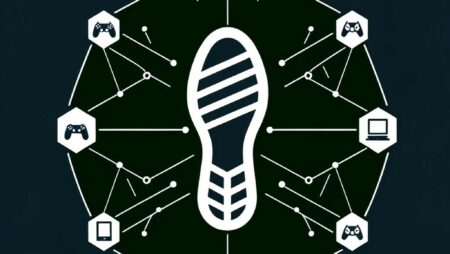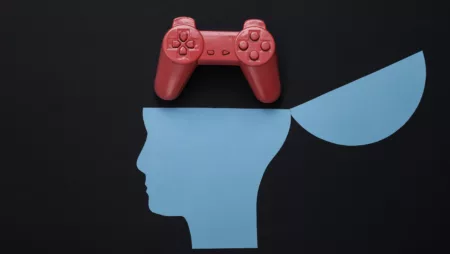
Capturing the Digital Footprints of Video Game Play
We’re developing an open source method of collecting behavioural video game data, to allow for rigorous science without relying on direct collaboration with industry.

I am a research psychologist who studies human motivation, health, and well-being in the digital age. I am curious about how our minds navigate the shifting boundaries between analogue and digital environments. Since 2011 – the beginning of the replication crisis in psychology – I have been interested in how different attempts to improve the behavioral sciences might sharpen or obscure how we understand life in an increasingly connected world.
More recently, some amazing charities and the UK government have supported my involvement in research probing this. These projects are all about looking at how different scientific approaches using data from surveys, health data, brain scans, online platforms, and video games could teach us something valuable about how humans play, socialise, and thrive.
As an undergraduate at the University of Rochester in New York, I enjoyed studying psychology, religion and classics. Later, I was honored to continue my education at Rochester with Richard M. Ryan and Edward L. Deci. Together with clinical psychologist C. Scott Rigby we studied motivation, learning, immersion, and engagement in video games.
Digital well-being, online platform data donation, online trace data, online victimisation, social media, video games and mental health.
Human motivation, mental health, open science, meta science
Mansfield, K.L., Ghai, S., Hakman, T., Ballou, N., Vuorre, M. and Przybylski, A.K. (2025) “From social media to artificial intelligence: improving research on digital harms in youth“, Lancet Child & Adolescent Health. 9 (3) 194-204.
Ballou, N., Hakman, T., Vuorre, M., Magnusson, K. and Przybylski, A.K. (2025) “How Do Video Games Affect Mental Health? A Narrative Review of 13 Proposed Mechanisms“, Technology, Mind, and Behavior. 6 (2).
Vuorre, M., & Przybylski, A. K. (2023). Global Well-Being and Mental Health in the Internet Age. Clinical Psychological Science, 21677026231207790. https://doi.org/10.1177/21677026231207791
Vuorre, M., & Przybylski, A. K. (2023). Estimating the association between Facebook adoption and well-being in 72 countries. Royal Society Open Science, 10(8), 221451. https://doi.org/10.1098/rsos.221451
Vuorre, M., Johannes, N., Magnusson, K., & Przybylski, A. K. (2022). Time spent playing video games is unlikely to impact well-being. Royal Society Open Science, 9(7), 220411. https://doi.org/10.1098/rsos.220411
Orben, A., Przybylski, A. K., Blakemore, S.-J., & Kievit, R. A. (2022). Windows of developmental sensitivity to social media. Nature Communications, 13(1), 1649. https://doi.org/10.1038/s41467-022-29296-3
Orben, A., & Przybylski, A. K. (2019). The association between adolescent well-being and digital technology use. Nature Human Behaviour, 3(2), 173–182. https://doi.org/10.1038/s41562-018-0506-1
Przybylski, A. K., & Weinstein, N. (2017). A Large-Scale Test of the Goldilocks Hypothesis: Quantifying the Relations Between Digital-Screen Use and the Mental Well-Being of Adolescents. Psychological Science, 28(2), 204–215. https://doi.org/10.1177/0956797616678438

We’re developing an open source method of collecting behavioural video game data, to allow for rigorous science without relying on direct collaboration with industry.

This project will collect and share detailed behavioural game data donated by players to help us understand how the quality and quantity of online play shapes human motivation and mental health.

This programme addresses the assumptions that the overall mental well-being of young people is undergoing a pronounced period of decline and that digital technologies might be driving this trend.
Professor Przybylski’s work is financially supported by UK Research and Innovation and the Economic and Social Research Council (ES/Y010736/1). In previous years, his research was funded by the ESRC, Huo Family Foundation, The British Academy, The Diana Award, The Leverhulme Trust, Barnardo’s, and the University of Oxford’s John Fell Fund.
From 2022 until 2024, he served as a scientific advisor to the Sync Digital Wellbeing Program. In 2025, he provided advice to the Google Expert Advisory on Youth and Tech and the Open AI Expert Council on Well-Being and AI. In 2025, he provided advice to UK’s Department for Science, Innovation and Technology, funded research and analysis on Understanding the impact of smartphones and social media on children and young people (led by the University of Cambridge).
Professor Przybylski is a member of the UK’s Department for Culture, Media & Sport’s College of Experts, and he is now writing a book based on his research.
Professor Przybylski donates any fees from industry to charity and conducts his research in line with the University of Oxford’s academic integrity code of practice.
